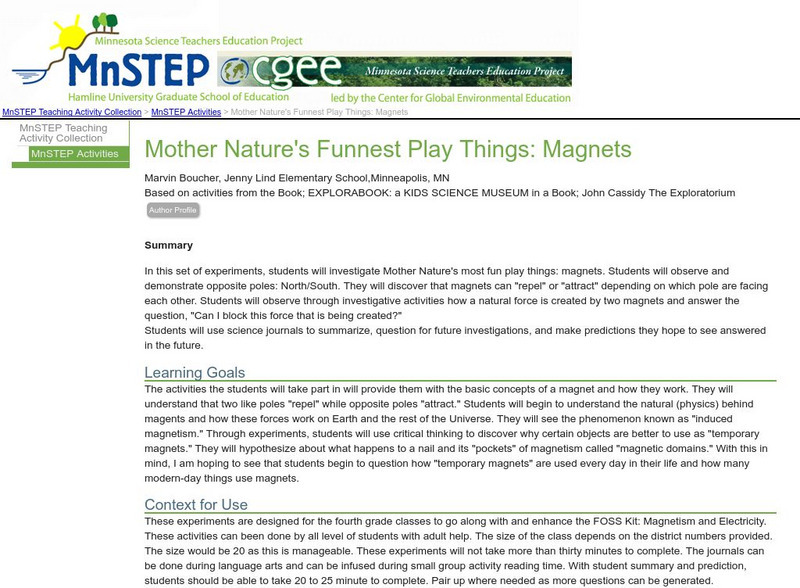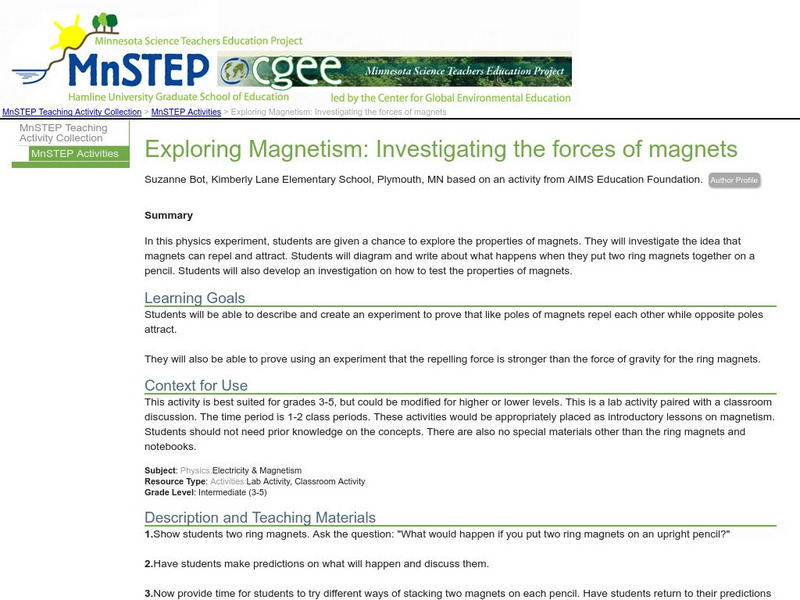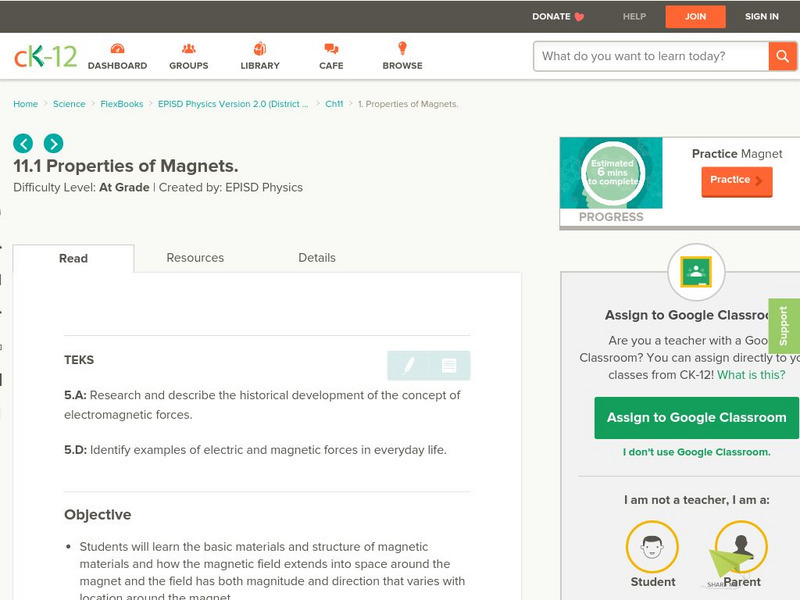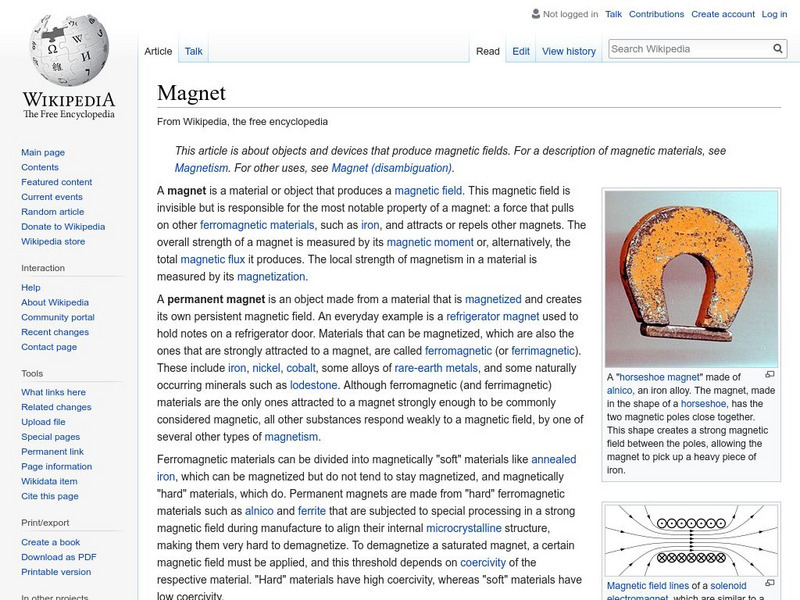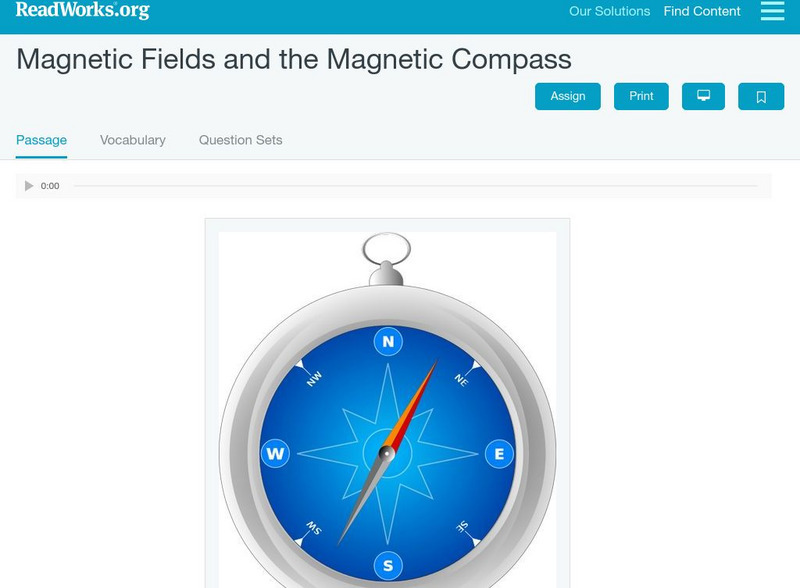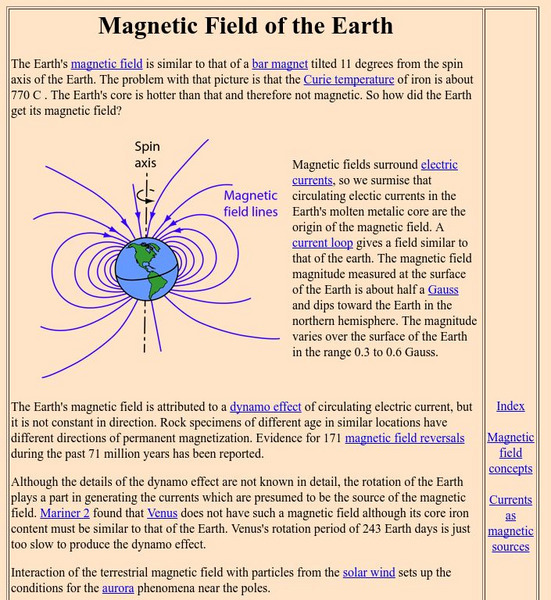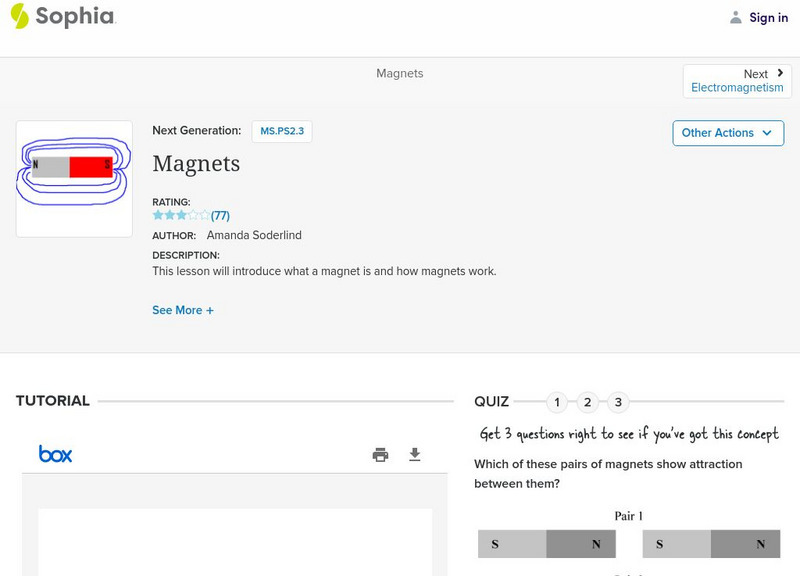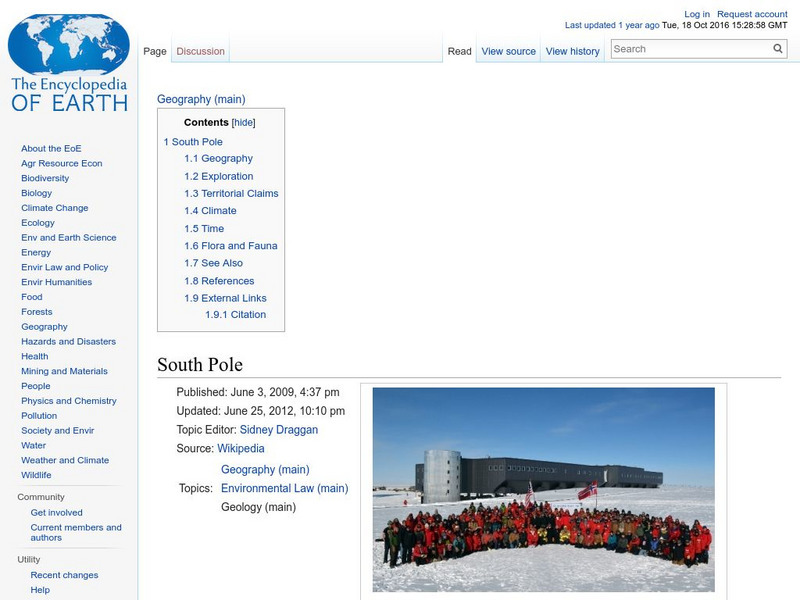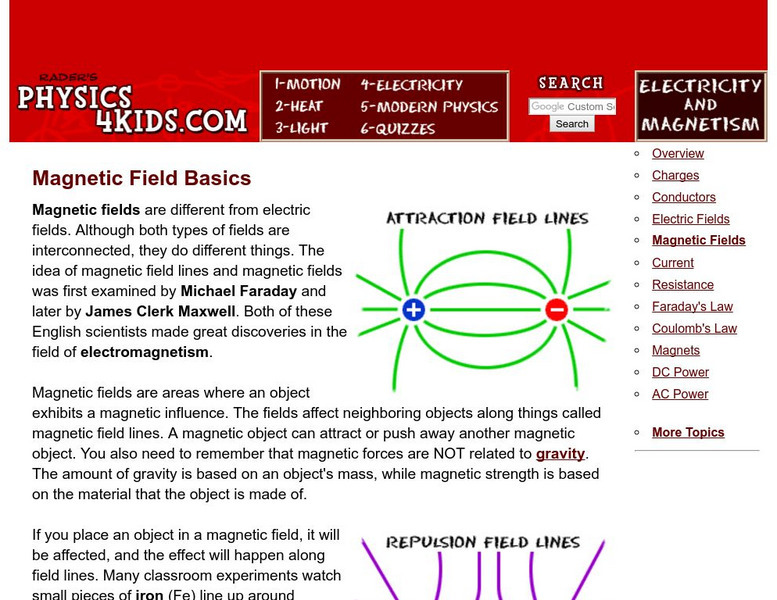Science Education Resource Center at Carleton College
Serc: Mother Nature's Funnest Play Things: Magnets
For this experiment, students will investigate magnets and how they work. They will understand that two like poles "repel" while opposite poles "attract." They will also observe how a natural force is created by two magnets and answer...
Alabama Learning Exchange
Alex: The Magnetic Maglev Train
This is a hands-on, inquiry-based lesson that includes three magnetic stations in which students or small groups rotate in order to test and discover different magnetic properties and then use their knowledge to build a Maglev Train...
Science Education Resource Center at Carleton College
Serc: Exploring Magnetism: Investigating the Forces of Magnets
Students describe and create an experiment to prove that like poles of magnets repel each other while opposite poles attract. Using the experiment, they use the data to support the claim that the repelling force is stronger than the...
E-learning for Kids
E Learning for Kids: Science: Alexandrian Lighthouse: What Are Properties of Magnets?
Learn about the properties of magnets, what metals are attracted to them, what magnetic poles do, and about repulsion and attraction.
CK-12 Foundation
Ck 12: Properties of Magnets
[Free Registration/Login may be required to access all resource tools.] Looks at magnetic materials and the structure and breadth of a magnetic field. The concept of magnetic domains is explained, and how they behave in a magnetic field....
TeachEngineering
Teach Engineering: Magnetic Attraction
Students complete a series of six short investigations involving magnets to learn more about their properties. Students also discuss engineering uses for magnets and brainstorm examples of magnets in use in their everyday lives.
National High Magnetic Field Laboratory
Magnet Academy: Timeline of Electricity and Magnetism: 600 Bc 1599
Find out how humans discovered the magnetic lodestone as well as the attracting properties of amber. Advanced societies, in particular the Chinese and the Europeans, exploited the properties of magnets in compasses, a tool that makes...
CK-12 Foundation
Ck 12: Physical Science: Earth as a Magnet
[Free Registration/Login may be required to access all resource tools.] Explains how Earth is a magnet, its geographic and magnetic poles, and its magnetic field.
Learn Engineering
Learn Engineering: Understanding Rotating Magnetic Field & Synchronous Speed
Get information about rotating magnetic fields and how electric machines use them for their operation. Discusses synchronous speed and number of poles on an electrical machine. The accompanying article discusses the topics found in the...
Wikimedia
Wikipedia: Magnet
Wikipedia.com provides an excellent introductory site on magnets. Including basic information describing different types of magnets and their characteristics.
PBS
Nova: Magnetic Storms: When Compasses Pointed South
Earth's magnetic poles have reversed themselves throughout its long history. Find out what scientists know about these reversals. A geologic time line shows when the reversals occurred.
Woods Hole Oceanographic Institution
Woods Hole Oceanography Institute: Hot Topics: Seafloor Magnetics
The earth's magnetic poles have reversed themselves throughout the earth's history. Find out how scientists know that this happened.
Read Works
Read Works: Electric and Magnetic Forces and the Modern Day Compass
[Free Registration/Login Required] An informational text about how a compass works using electromagnetic force. A question sheet is available to help students build skills in reading comprehension.
Treehut
Suzy's World: Magnetism: Why Does a Compass Point North?
This fact sheet from Suzy's World and Suzy Cato explores how magnetism works, including "why a compass points north." Content includes fun facts, an experiment, and the ability to make your own compass.
Georgia State University
Georgia State University: Hyper Physics: Magnetic Field of the Earth
This site is a description of the earth's magnetic field, including a section on the "Dynamo effect," a proposed explanation for the origin of the earth's magnetic field.
Science Struck
Science Struck: Fun and Interesting Facts About Magnets
Discusses some history of magnets, the science of magnetism, and interesting facts about them.
Encyclopedia of Earth
Encyclopedia of Earth: Geography: South Pole
Information about the Geographic South Pole. Explains how it is defined, the marker (which must be adjusted each year due to ice movements) that identifies its location, and 'other' South Poles, i.e., the Ceremonial South Pole and the...
CK-12 Foundation
Ck 12: Fifth Grade Science: Physical Science: Earth as a Magnet
[Free Registration/Login may be required to access all resource tools.] Looks at the Earth as a magnet and how Earth's magnetism benefits living things.
National High Magnetic Field Laboratory
Magnet Academy: Make a Compass
Learn how to make a simple compass right at home. [1 min, 21 secs]
PBS
Pbs Teachers:magnetic Storm: Visualizing Magnetic Fields
Explore the magnetic fields around different shapes of magnets.
ClassFlow
Class Flow: Magnets
[Free Registration/Login Required] This flipchart helps students differentiate between and identify objects that are attracted by a magnet and those that are not attracted by a magnet.
Physics4kids
Physics4 Kids: Electricity and Magnetism: Magnetic Fields
Explains magnetic fields, how they differ from electric fields, and attraction and repulsion.
Alabama Learning Exchange
Alex: How Do Magnets Work?
During this lesson students will examine magnets and determine that they have two poles (north and south). They will observe which poles attract and which poles repel.


